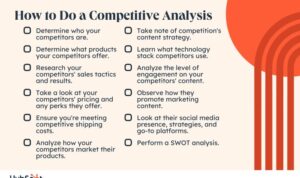Online Business Compliance sets the stage for navigating through essential regulations that can make or break a business. From data protection to financial rules, this topic delves into the crucial aspects of staying compliant in the digital world.
As we dive deeper, you’ll uncover the key elements that ensure a business’s operations run smoothly while avoiding the pitfalls of non-compliance.
Importance of Online Business Compliance

Online business compliance is crucial for the success and sustainability of any digital venture. Adhering to online business compliance regulations ensures that a company operates within the legal boundaries set by authorities, protecting both the business and its customers.Non-compliance with online business regulations can have severe consequences, damaging a company’s reputation and hindering its day-to-day operations. Legal issues resulting from non-compliance can lead to hefty fines, lawsuits, or even the shutdown of the business.
Examples of Legal Requirements for Online Businesses
- Privacy Policies: Online businesses are required to have clear and comprehensive privacy policies detailing how they collect, use, and protect customer data.
- Payment Card Industry Data Security Standard (PCI DSS): E-commerce websites must comply with PCI DSS to secure online transactions and protect sensitive payment information.
- ADA Compliance: Online businesses must ensure their websites are accessible to individuals with disabilities, complying with the Americans with Disabilities Act (ADA).
- COPPA Compliance: Websites targeting children under the age of 13 must comply with the Children’s Online Privacy Protection Act (COPPA) by obtaining parental consent before collecting personal information from minors.
Common Compliance Regulations for Online Businesses
When running an online business, it is crucial to understand and adhere to various compliance regulations to ensure the security and privacy of your customers’ data. Here are some common regulations that online businesses must follow:
Data Protection Regulations: GDPR vs. CCPA, Online Business Compliance
Data protection regulations are essential for online businesses to safeguard the personal information of their customers. Here are the key differences between the General Data Protection Regulation (GDPR) and the California Consumer Privacy Act (CCPA):
- GDPR: The GDPR is a regulation in the European Union that focuses on protecting the personal data of individuals within the EU. It requires businesses to obtain explicit consent from users before collecting their data, provides individuals with the right to access and delete their data, and imposes strict penalties for non-compliance.
- CCPA: The CCPA is a state-level regulation in California that grants consumers the right to know what personal information businesses collect about them, the right to opt out of the sale of their data, and the right to request the deletion of their data. It applies to businesses that meet certain criteria and operates in California.
Financial Regulations: PCI DSS
Financial regulations like the Payment Card Industry Data Security Standard (PCI DSS) are crucial for online businesses that process credit card payments. Here’s how PCI DSS affects online businesses:
- PCI DSS Compliance: Online businesses that accept credit card payments must comply with PCI DSS standards to ensure the secure handling of cardholder data. This includes implementing firewalls, encrypting data transmissions, and conducting regular security assessments.
- Consequences of Non-Compliance: Failure to comply with PCI DSS can result in hefty fines, loss of customer trust, and potential data breaches. It is essential for online businesses to prioritize PCI DSS compliance to protect both their customers and their reputation.
Implementing Compliance Measures

Implementing compliance measures for an online business is crucial to ensure adherence to regulations and protect both the business and its customers. By following a structured approach, businesses can establish a strong compliance framework that minimizes risks and promotes trust.
Steps for Implementing Compliance Measures
- Conduct a Compliance Audit: Start by assessing current processes and identifying areas that need improvement to meet compliance requirements.
- Develop Compliance Policies: Create clear and comprehensive policies that Artikel the rules and procedures for compliance within the organization.
- Provide Employee Training: Educate employees on compliance regulations, policies, and procedures to ensure everyone understands their role in maintaining compliance.
- Implement Monitoring Systems: Use technology to track compliance activities, monitor risks, and generate reports for analysis and improvement.
- Regularly Review and Update: Stay up-to-date with changes in regulations and continuously review and update compliance measures to remain compliant.
Best Practices for Ensuring Ongoing Compliance
- Assign a Compliance Officer: Designate a compliance officer or team responsible for overseeing compliance efforts and ensuring all activities align with regulations.
- Establish Clear Communication Channels: Encourage open communication within the organization to address compliance issues promptly and effectively.
- Engage External Auditors: Seek external audits periodically to validate compliance efforts and identify areas for improvement.
- Regularly Conduct Risk Assessments: Evaluate potential risks to compliance regularly and implement measures to mitigate these risks proactively.
- Implement a Whistleblower Policy: Create a mechanism for employees to report compliance violations anonymously without fear of retaliation.
Role of Compliance Officers or Teams
Compliance officers or teams play a critical role in managing online business compliance by ensuring that policies and procedures are followed, conducting audits, providing training, and fostering a culture of compliance within the organization. They act as a bridge between regulatory requirements and business operations, helping to minimize risks and maintain a strong reputation for the business.
Tools and Technologies for Ensuring Compliance
In today’s digital age, online businesses face a myriad of compliance regulations that they must adhere to in order to operate legally and securely. To assist with managing these requirements, various software tools and technologies have been developed to streamline the compliance process and ensure consistent adherence to regulations.
Compliance Management Platforms
- One popular compliance management platform is Compliance Manager, which offers a centralized dashboard for monitoring and tracking compliance requirements across different regulations.
- Another option is LogicGate, a platform that allows businesses to create custom compliance workflows, automate tasks, and generate compliance reports.
- Additionally, ZenGRC provides a cloud-based solution for managing compliance programs, risk assessments, and control testing.
Role of Automation in Compliance
Automation plays a crucial role in ensuring consistent compliance with regulations by reducing the manual effort required to monitor, track, and report on compliance activities. By automating repetitive tasks such as data collection, risk assessments, and reporting, businesses can improve efficiency and accuracy in their compliance efforts. Automation also helps in identifying non-compliance issues in real-time, allowing for timely remediation and proactive risk management.





